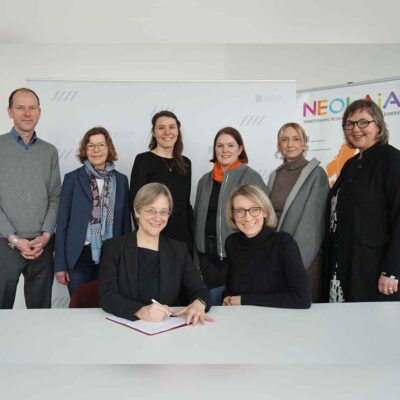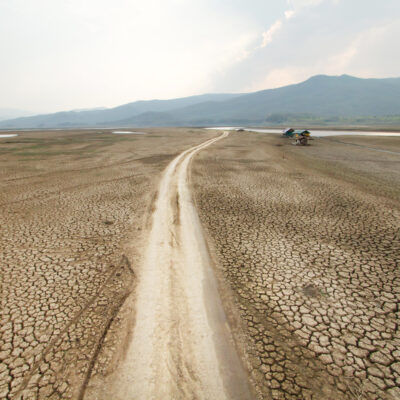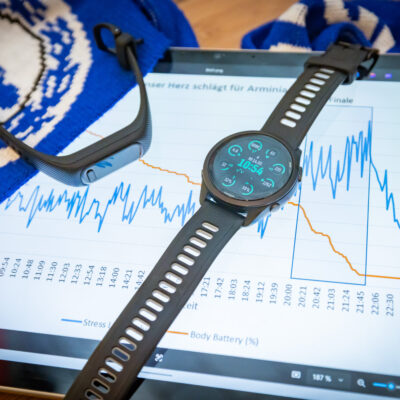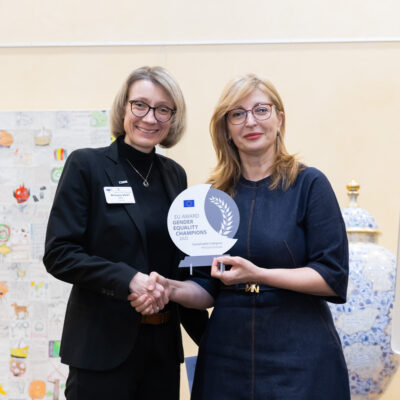Professor Dr. Oliver Razum heads not only the Working Group on Epidemiology and International Public Health at Bielefeld University’s School of Public Health: as part of the ASPHER Network, an association of over 120 public health faculties across Europe, he also leads the Task Force on War and Public Health. In this capacity, Dr. Razum, together with colleagues from around the world, organised a delegation trip to meet with association members in Israel and Palestine, where he visited faculties and spoke with researchers and students, including at Ben-Gurion University of the Negev, which is a partner university of Bielefeld University. The researchers on this delegation trip sought to gain first-hand insight into the situation there following the events of October 7th, 2023, along with the challenges this has entailed for public health – and to engage in open discussion on these topics. What follows is an interview on what academic research can contribute to the conflict in the Middle East, and how the observations, discussions, and experiences from this trip might be transferred back into teaching at Bielefeld University.
Dr. Razum, when you now think back on your one-week trip to Israel and Palestine, what stands out to you in particular?
The suffering of everyone I spoke to. Trauma not only on an individual level, but also on a social level, both in Israel and in Palestine. We are speaking about comparatively small countries. Almost everyone knows someone who was or is affected by violence – or has been impacted themselves. We were able to trace where this trauma is coming from in the tragic and terrible stories that we heard, in Israel and Palestine alike. When the internet was stable, we were able to have a video call with a colleague who is a professor in Gaza. He lost his nieces and nephews during the war; since October 7th, he has moved six times and showed us pictures of how he has to make his lunch in a clay pot on an open fire. Another colleague from a School of Public Health in Israel told us how he had stand by and watch, in a family chat group, his sister and brother-in-law being shot while their children were calling for help. These are stories I simply cannot forget.
From your perspective as a public health researcher, what else did you observe during your time in Israel and Palestine?
First and foremost, the division in both Israeli and Palestinian societies: many people do not identify at all with their governments’ policies. Many people are looking for ways in which they can live together, despite everything. This, however, is made more difficult by the enormous pain and suffering of everyone involved.

© Mike-Dennis Müller
What might this visit by your group of international public health researchers accomplish?
Public health, as a field, is comprised of research, teaching, and practical, real-world work. We consider the social and political factors that influence health – we call these ‘determinants.’ And it is precisely these kinds of determinants that are currently affecting Israeli and Palestinian society: we see the direct and indirect consequences of violence. We are also seeing the tremendous need for dialogue. Before the trip, I was even worried that we might be heading into some kind of disaster tourism. But in fact, the opposite was true. Everyone we spoke with in both Israel and Palestine responded by saying: ‘Thank you for being here and listening to us.’ The fact that someone comes, listens, and is prepared to accept the reality of this suffering is important to the people in the region. Our trip therefore had an aspect to it in which our being there was in support and solidarity. But perhaps our trip was also a small step in a necessary direction: that of recognizing each other’s suffering and moving beyond the back-and-forth of finger-pointing and assigning blame.
What is ASPHER’s contribution to this?
As ASPHER, we are obviously not able to solve the conflict in the Middle East. That said, it is very important to us that we can talk about the conflict without descending into strife. Within our network, there is a wide spectrum of positions represented – we have members with many different backgrounds and from many different countries. We would like to be able to, for instance, issue statements on the war that everyone can stand behind – including members from Israel and Palestine.
Such statements are, by definition, a compromise and thus open to criticism – and subject to being revised as events unfold. However, the path towards producing statements is more important than the final product, as in doing so we demonstrate that we can talk about the conflict and come to agreement. What we have learned from this process of consensus-making is also something we want to incorporate into our teaching.
What do you have in store for teaching?
It is notoriously difficult to speak about the conflict in the Middle East. We are seeing and experiencing this first-hand in current media debates and at cultural events. I notice that students are often reluctant to say anything about the subject at all out of fear of saying the wrong thing. At the university, however, we must be and remain able to talk about controversial topics – with mutual respect and without falling into extreme positions. In April, we are planning a seminar with colleagues from the
Institute for Interdisciplinary Research on Conflict and Violence (IKG) and the Faculty of Educational Science on how to deal with conflicts. We will also address the issue of the difference between anti-Semitism and legitimate criticism of the government of Israel. The goal here is to empower students to be able to talk about the conflict in the Middle East. We will also be inviting colleagues from Israel and Palestine to attend this seminar with us in Bielefeld via Zoom. Dr. Martin Auerbach will also be attending these seminars in Bielefeld: he is a psychotherapist in Israel and provides psychotherapeutic support for Holocaust survivors and their descendants, as well as others who have experienced collective violence. We would like to speak with him about how to work through trauma. Beyond the specific link to the Israel-Palestine conflict, this is part of our larger efforts to teach our students and later graduates how to constructively deal with conflict. This, after all, must ultimately be the goal of public health.




